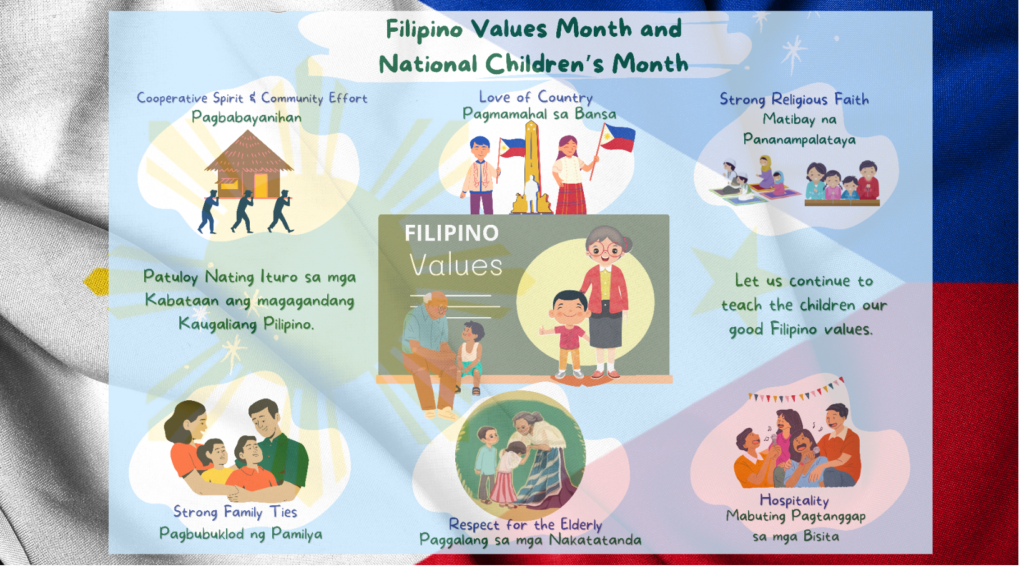
In 1992, former President Fidel Ramos pronounced a Moral Recovery Program because of the need to fortify the ethical assets of the Filipinos. We are to practice values that are supportive of God, favorable to individuals, favorable to the nation, and supportive of nature. This prompted Proclamation No. 479, endorsed on October 7, 1994, that praises the long stretch of November as the Filipino Values Month.
Values are the underlying foundations of customs that Filipinos track down significantly in their everyday occasions. They are imparted from the get-go throughout everyday life, are profoundly imbued, and are impervious to change. They are created from individuals’ immediate encounters with other people who are vital to them, like guardians, educators, companions, and cohorts.
The family is at the very front of imparting values among Filipino youth, with the home as the spot for supporting and fortifying qualities. Schools support these qualities by giving open doors to the young to notice the qualities that they have guzzled at home and in their communications with friends and bosses.
As the centuries progressed and through cooperation with people groups of various societies, Filipinos have obtained persistence, dutiful devotion, close family ties, business sharpness, and so on, incorporating them into their method of life. These values reflect the Filipino individuals’ rich legacy of history and culture. They manifest the things in life that Filipinos respect. With these qualities, Filipinos have adapted to the changes in life.
National Children’s Month is celebrated in November in the Philippines every year. This month-long celebration aims to give Filipino children access to a healthy environment, good education, and healthcare. Dr. Jose Rizal, the Philippines’ national hero, once said that the youth is the future of the nation, and investing in children is key for the betterment of the next generation. This holiday also comes from a place of empathy. As a third-world country, most families struggle financially, and it’s the children who suffer the most. This month highlights the ways we can help and support them.
The Philippines first adopted the Convention on the Rights of the Child by the United Nations on November 20, 1989. The National Youth Commission (N.Y.C.), the Council for the Welfare of Children (C.W.C.), and the Department of Social Welfare and Development (D.S.W.D.) were tasked to come up with activities, plans, and charitable events to help children in need.
The focus of National Children’s Month is to offer help to those children who suffered from abuse, poverty, natural calamities, and violence. In fact, in 2013 alone, there was a disturbingly high rate of children who suffered from sexual abuse and exploitation.
By 2015, late Philippine President Benigno Aquino III made November the official National Children’s Month in the Philippines under the Republic Act No. 10661.